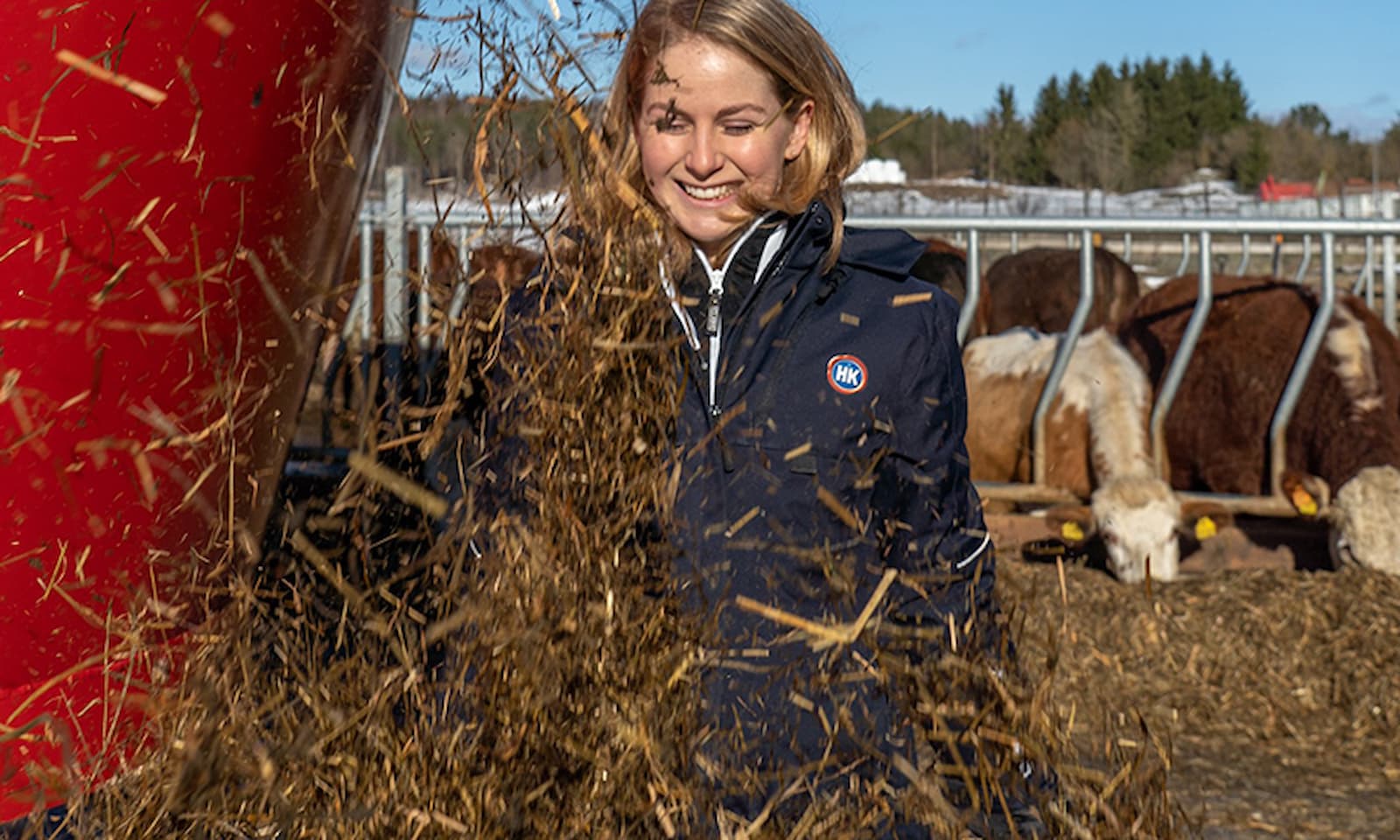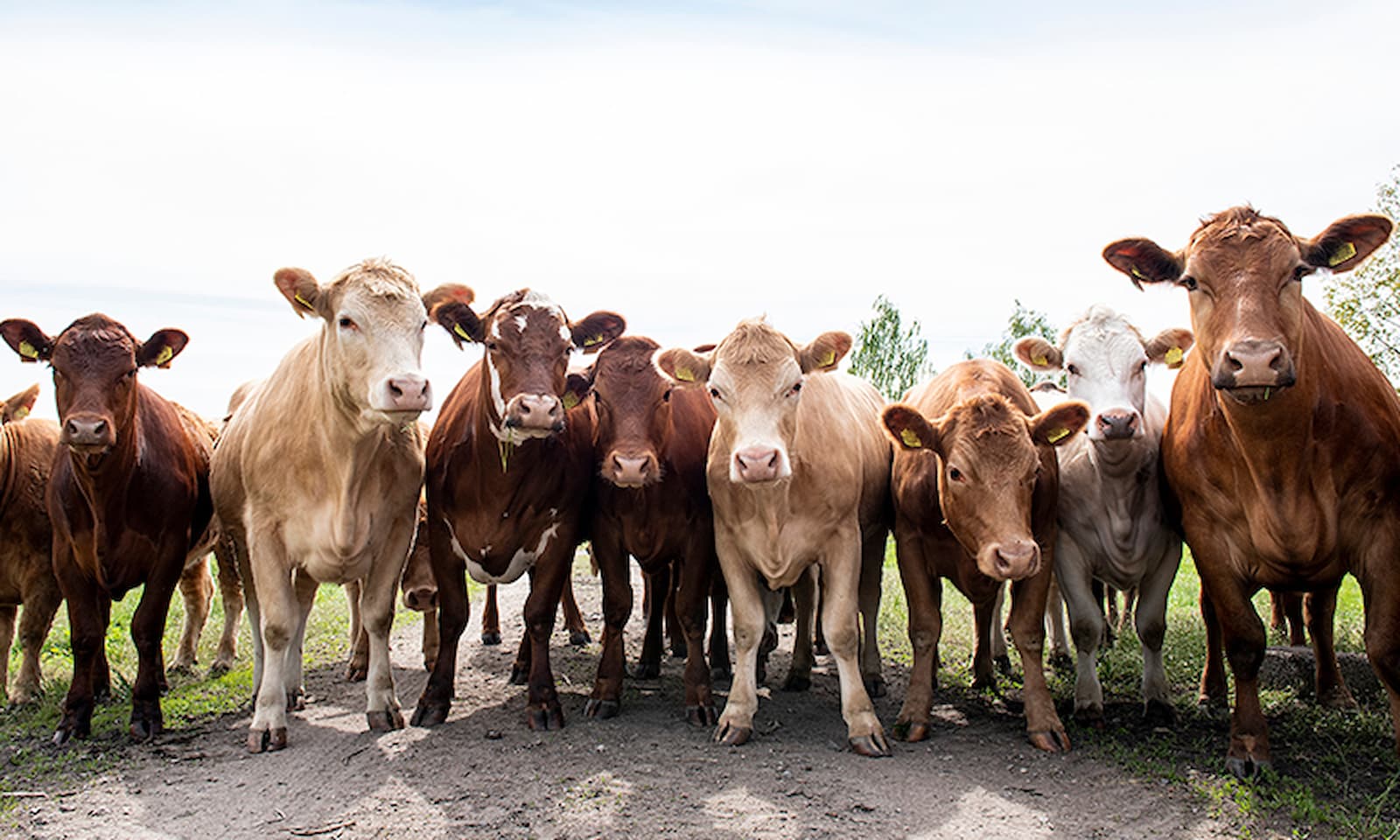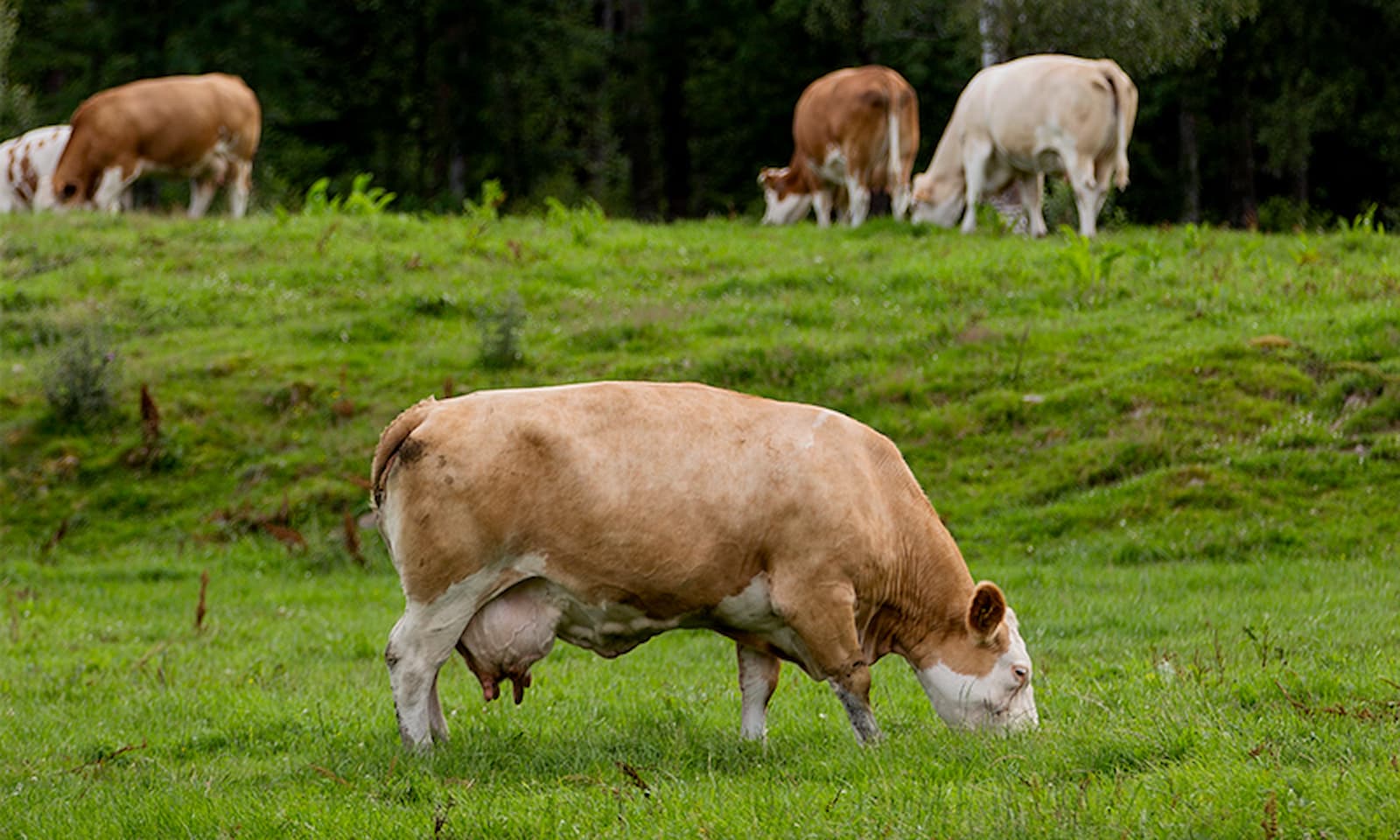Strict laws and regulations guide animal welfare in our countries of operation in the Baltic Sea region. Animal welfare is close to the heart of our farmers as it guarantees good growth and high-quality products. Thanks to our close cooperation with farmers, we know the origin of meat and the growing conditions of animals. Healthy animals also ensure a profitable business for a farmer.
We acquire animals directly from our contract farmers and closely monitor animal welfare. Our farmer services provide guidance, training and various development programmes to support producers in animal welfare and feeding and in environmental aspects of farming. Our own vets visit the farms and help farmers in animal welfare issues. The scope of farmer services varies in our operating countries.
We develop animal health and welfare together with our farmers in line with the Welfare Quality® principles:
- Good feeding: freedom from hunger and thirst
- Good housing: comfort around resting, thermal comfort, enough space to move around freely
- Good health: freedom from injuries and diseases, painless treatment
- Species-specific appropriate behaviour: social and other behaviours, good human-animal relationships, positive emotions
Have a look at HKScan’s Animal Welfare Policy
Antibiotic-free meat
Animals grow healthy in conditions that promote good disease prevention and well-being. Antibiotics are not utilised at all in our food chain for growth promotion or disease prevention. The use of hormones for growth promotion is also forbidden. In HKScan's food chain, animals are treated with antibiotics only when they are ill, and only under the prescription and supervision of a veterinarian and in accordance with withdrawal periods. Therefore our products are always safe and antibiotic-free.
In other parts of the world, antibiotics and hormones can be used in animals also for growth promotion and disease prevention. These methods are forbidden at HKScan, and the total use of antibiotics in our home markets is negligible by international standards.
For decades, we have been developing animal welfare on a long-term basis together with our farmers. For example, animals in our Kariniemen poultry chain are so healthy that no antibiotics have been necessary. Since the use of antibiotics is strictly controlled, local meat is a safe and responsible choice in all our markets.
Animal health is ensured through species-specific housing, good hygiene practices, professional methods and animal handling, and high-quality disease prevention.
Pig tails and broiler foot pads indicate welfare
Pigs raised in Finland always have tails. Sounds obvious, but the reality is different: tail docking is routinely done in many countries. Tails indicate the welfare of pigs: a stressed pig can bite the tail of its mate.
With broilers, welfare can be seen in foot pads. Healthy foot pads indicate healthy broilers raised in good conditions with fluffy litter. On our poultry farms, foot pad health is at a very good level. For example in 2019, 99.46% of the broiler flocks in our chain got a foot pad quality index of zero, assessed by a veterinarian, which is the best possible index reading.
Beak trimming is not practiced in any of our operating countries.
Well growing animals
The quality and composition of feed significantly affect the growth and health of animals. Feed is mostly grown locally and its quality is closely monitored. In addition, the nutritional quality of feed is optimised to ensure good, balanced animal growth.
Top-notch disease prevention
Disease prevention in our meat production is world-class in all of our operating countries. The expertise of our farmers and strict operating guidelines and procedures guarantee that animals are healthy and our products are safe. Our production chain is committed to the prevention of animal diseases and we work closely with the authorities responsible for food safety.
Animal welfare guaranteed during transport as well
To be able to ensure animal welfare also during transport, we provide training to all our animal transport partners. Good, calm handling of animals during transport is important to ensure animal welfare, safety at work and high product quality. In addition to qualified drivers, we ensure animal welfare by using only vehicles designed and approved for the transport of animals. The authorities and HKScan’s veterinarians monitor the transport of animals on a regular basis.
Supervising veterinary officers are present at all slaughterhouses, following the unloading of animals from the vehicle. The veterinarians follow the movement of animals, making sure they are healthy. In addition, slaughtering operations are constantly monitored through internal and external audits. There are recording surveillance cameras in all of our slaughterhouses.





